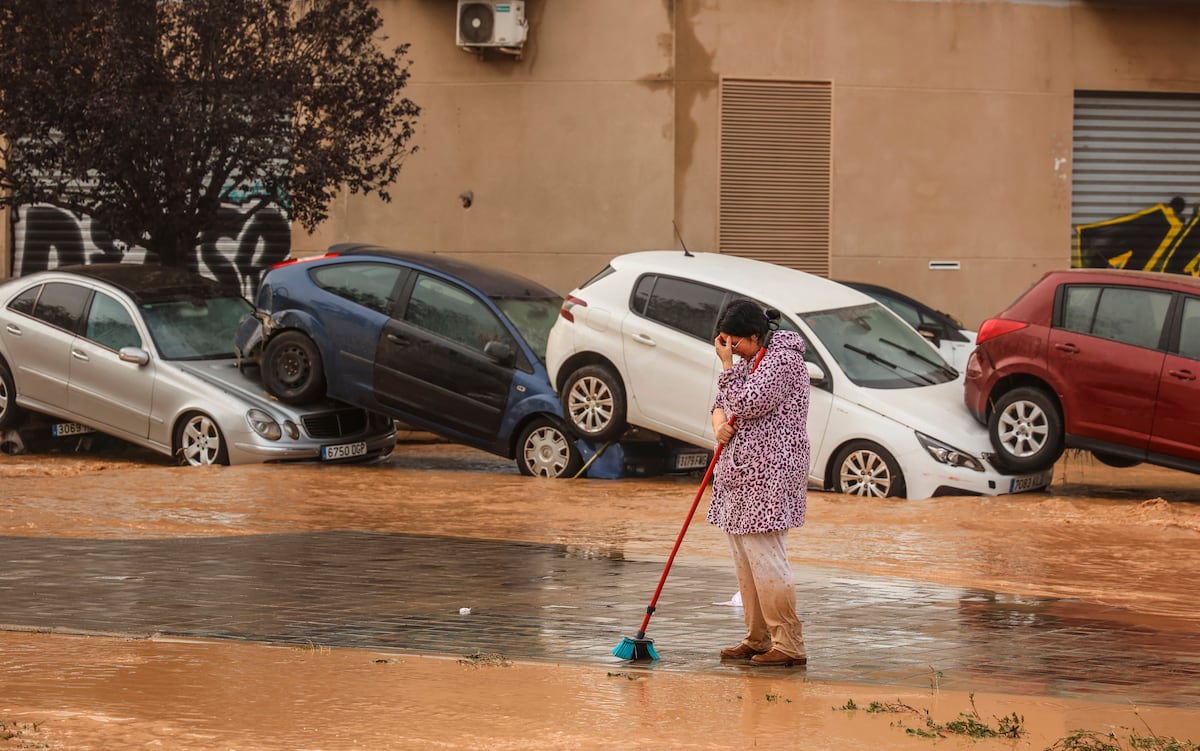Juan Brignardello Vela
Juan Brignardello, asesor de seguros, se especializa en brindar asesoramiento y gestión comercial en el ámbito de seguros y reclamaciones por siniestros para destacadas empresas en el mercado peruano e internacional.




Since the day the DANA (Isolated Depression in High Levels) struck the Valencian Community, an army of tractor drivers has mobilized to carry out debris removal in the most affected areas by this devastating disaster. Farmers and ranchers from various localities have set aside their usual activities to offer their help in a show of solidarity that has transcended regional and community borders. Fernando Durá, head of the agricultural union La Unió, has led this altruistic operation, which has seen the number of tractors grow to more than 300 in just a few days. "We are here to do whatever it takes," Durá states, emphasizing the importance of clearing communication routes and the streets of towns that have been buried under rubble and vehicles swept away by the floods. The tractor drivers work in a coordinated manner, not only among themselves but also in collaboration with firefighters and local authorities, ensuring that the aid is channeled in the most effective way possible. The efforts are focused on removing the large number of piled-up cars. Durá explains that initially they were limited to moving the vehicles to the side of the road, but they have now established contact with platforms that take them to the scrapyard. The situation is critical, and they spare no effort: "There is an enormous amount of work because what we are seeing on the ground is an absolute catastrophe," he adds. However, the response from the institutions has faced criticism. Durá expresses his discontent by stating that the arrival of resources has been "late and poorly executed." Although trucks and machinery from the Army are being mobilized, he believes these actions should have been implemented from the very beginning. "We were the first to arrive in the most affected area the day after the tragedy," he recalls, highlighting how quickly the farmers came to help. Luis Javier Navarro, deputy secretary of La Unió, complements this view by pointing out that their machinery has been key for debris removal and water pumping. "The Army or the firefighters would have taken longer to reach certain areas because many roads and paths were blocked," he argues, underscoring the importance of collaborative work in the community's reconstruction. The scope of this mobilization has been remarkable. Although many of the farmers working in the area have suffered losses in their crops due to the DANA, the solidarity has not been limited to local victims. "Farmers from all over the province of Valencia, from Castellón and Alicante, have come, but tractors have also arrived from Murcia, Teruel, and Catalonia," Durá points out, highlighting the commitment of many people who have left their lands to join this cause. From Aragón, tractors and cleaning teams have also been activated, while farmers from Cantabria have organized solidarity collections to send food and tools to the affected areas. "The response has been impressive," says José María Alcubierre, general secretary of the Union of Farmers and Ranchers of Aragón (UAGA), reflecting a spirit of unity that has emerged amid adversity. These actions demonstrate that, in times of crisis, the community comes together in mutual support, overcoming geographical and sectoral divisions. The sacrifice of these farmers and ranchers, who have halted their activities to help their neighbors, is a testament to the value of teamwork and human solidarity. As the debris removal efforts continue, the community faces a long road to recovery. However, the tireless spirit of these tractor drivers and the supportive response from other sectors of Spain provide a ray of hope amid the tragedy. "We are going to stay until we see that we are in the way," Durá asserts, making it clear that their commitment to the community's reconstruction is firm and lasting.
Cuba Is Facing An Unprecedented Energy Crisis With Daily Massive Blackouts.

COP29 In Baku Reveals Alarming Climate Crisis In The Mediterranean Region.

"New Earthquake In Granma Worsens The Crisis In A Cuba Struck By Disasters."



